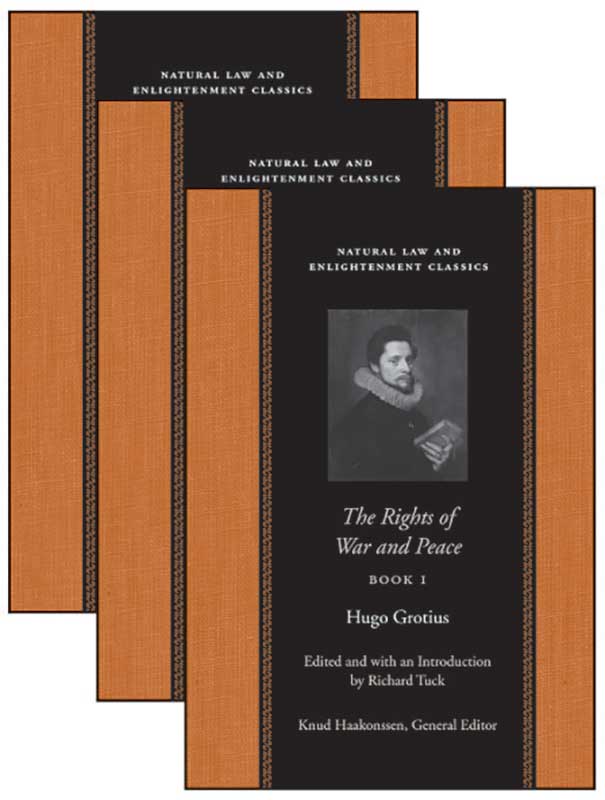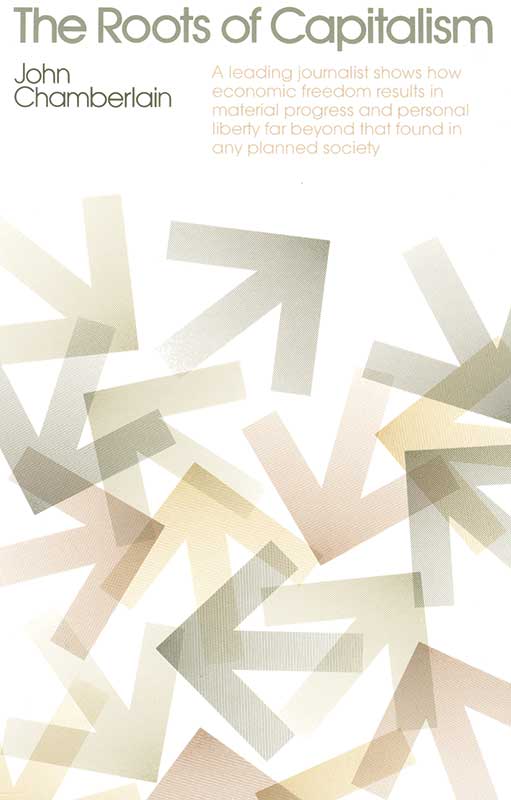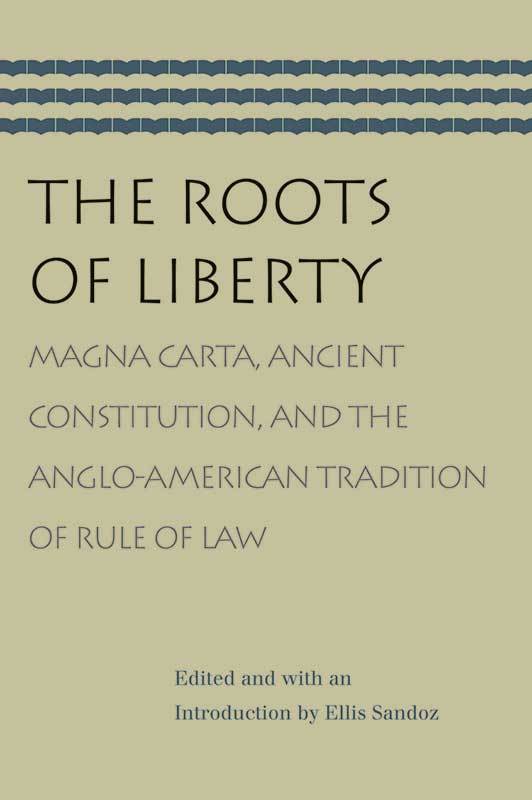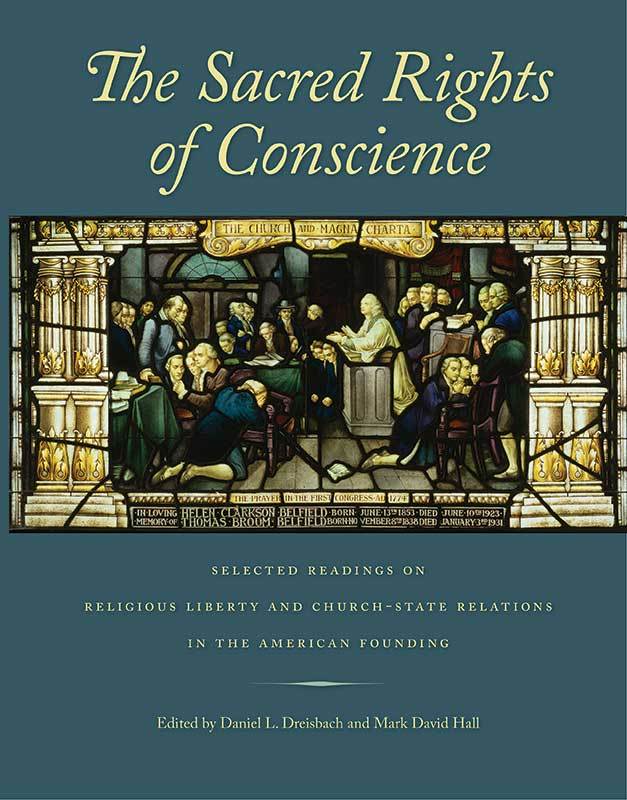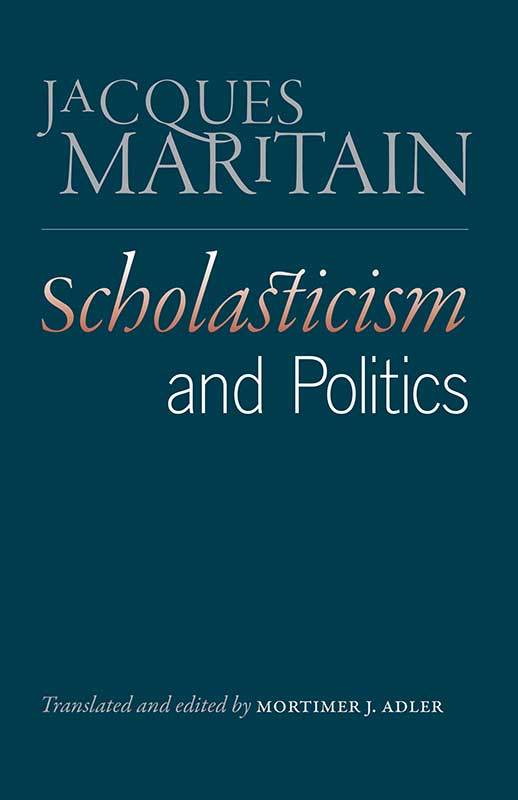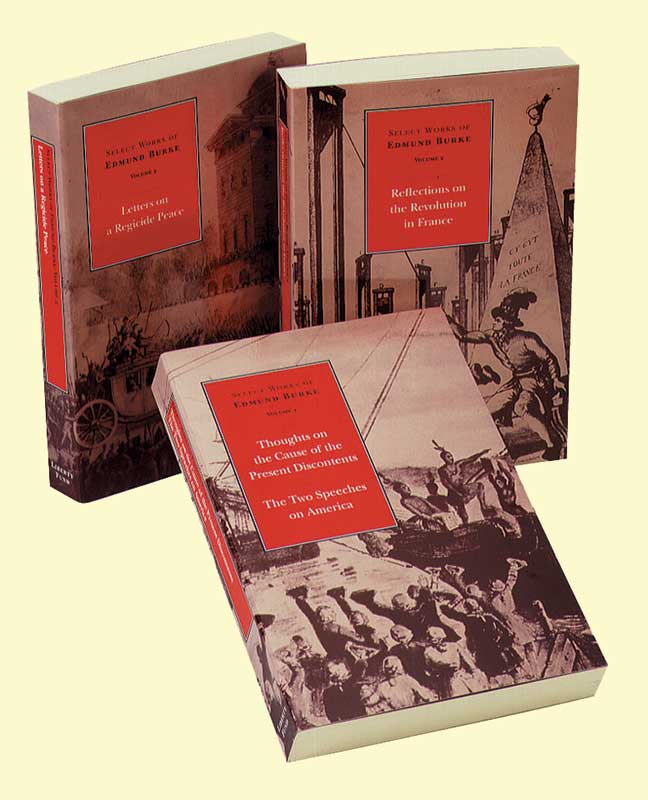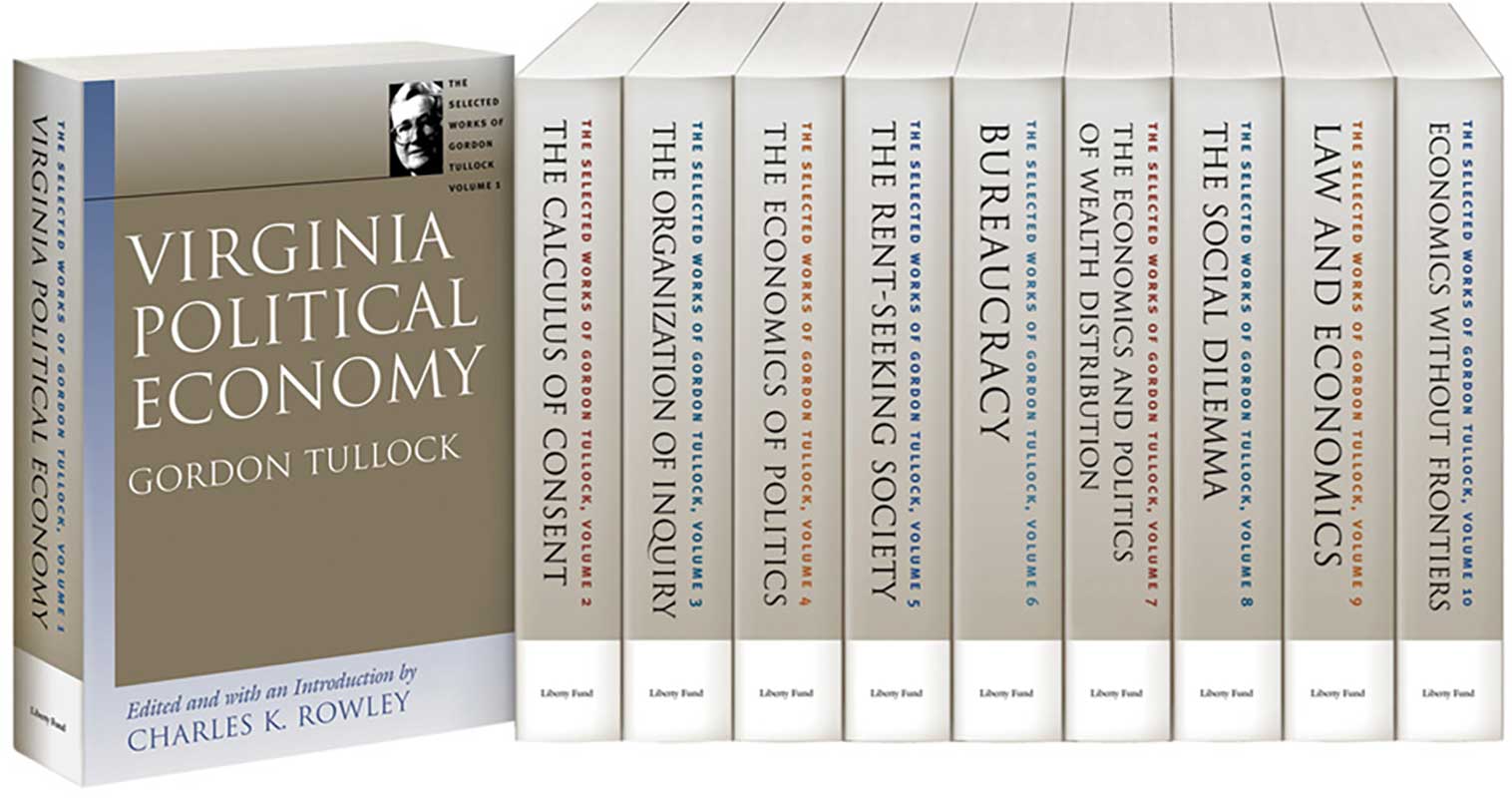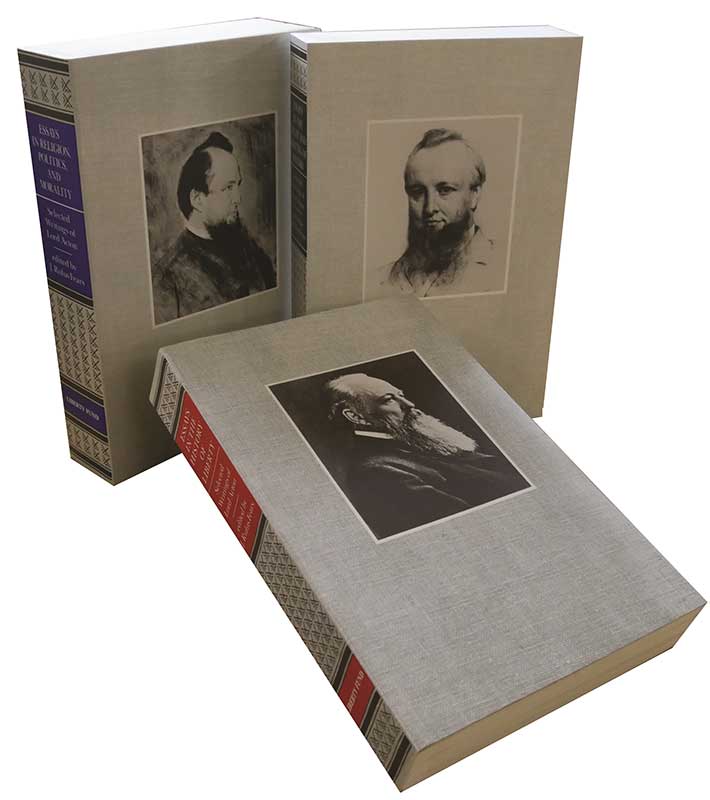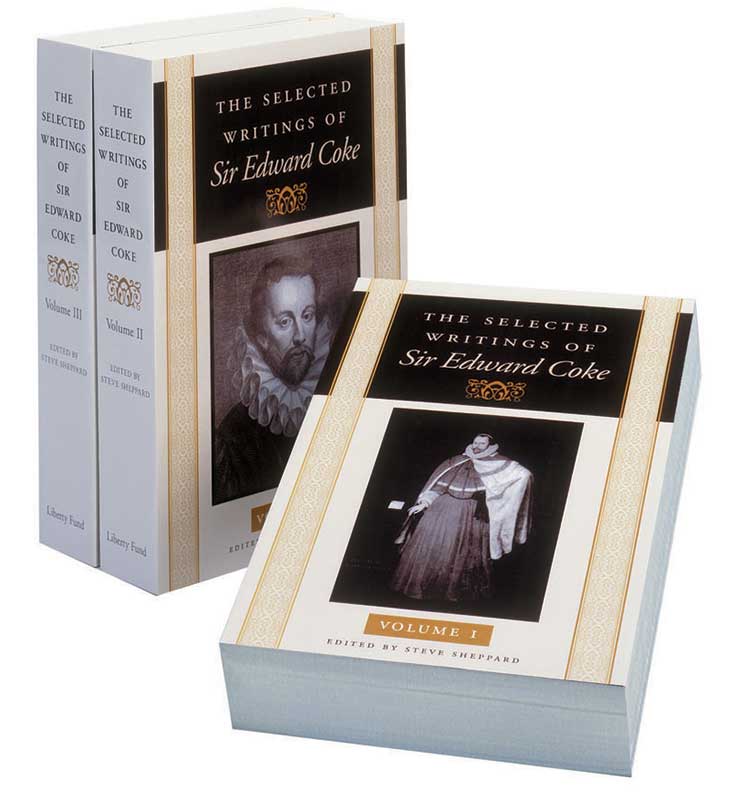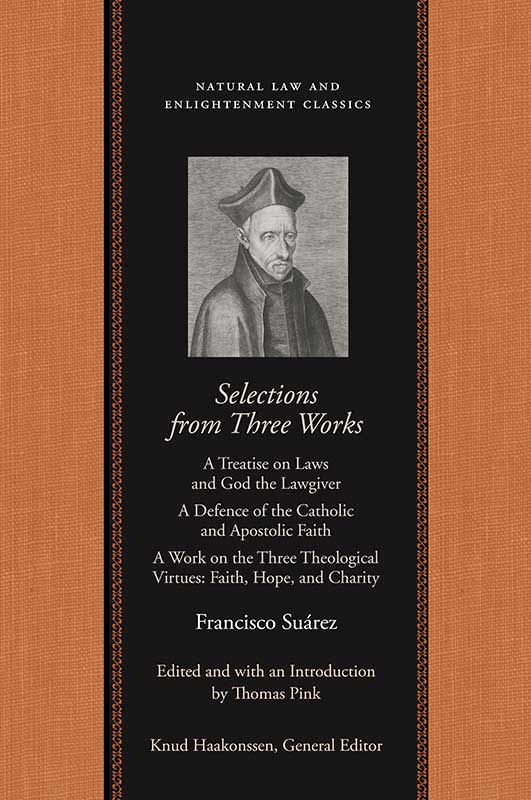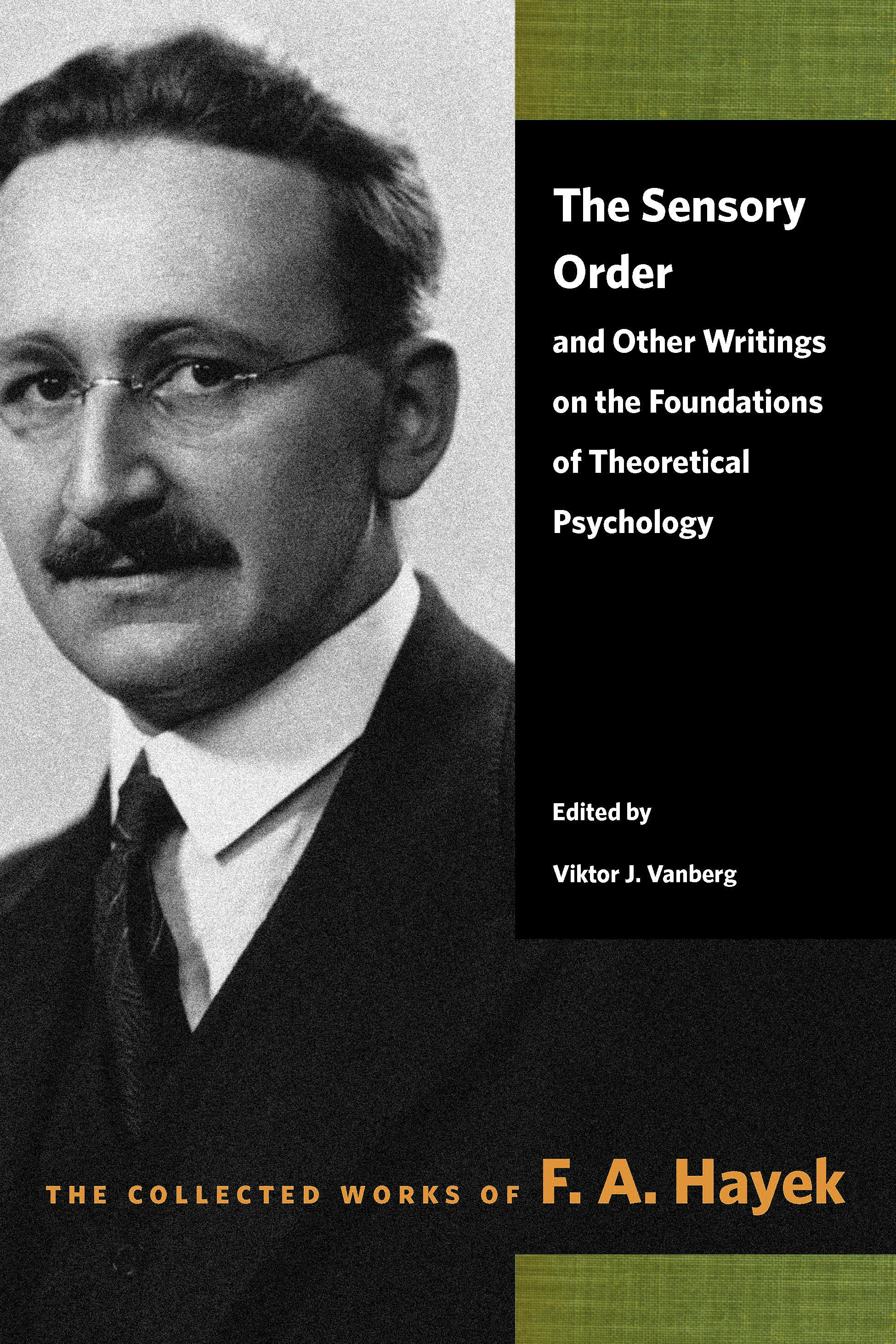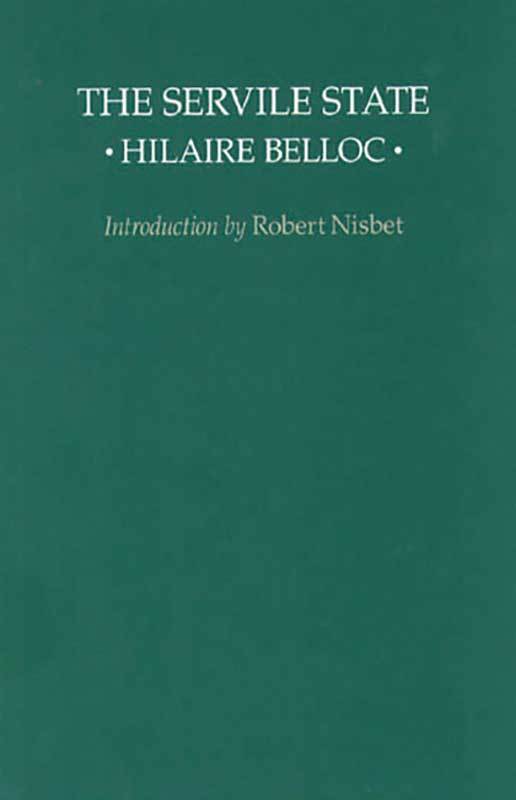Shop
-
The Rights of War and Peace
by Hugo Grotius
/ Learn MoreSince the nineteenth century, Hugo Grotius’s Rights of War and Peace has been the classic work in modern international law, laying the foundation for a universal code of law. Grotius’s continuing influence owed much to the eighteenth-century French editor Jean Barbeyrac, whose extensive commentary was standard in most editions, including the classic English one (1738), the basis for the Liberty…
-
The Roots of Capitalism
by John Chamberlain
/ Learn MoreCapitalism is a system that can stand on its own attainments, says John Chamberlain, and he offers here a fast-paced, provocative look at the intellectual forces and practical accomplishments that have created American capitalism. In clear, unequivocal language he discusses the ideas responsible for our economic institutions, the originators of these ideas, and the times in which they first became…
-
The Roots of Liberty
by Ellis Sandoz
/ Learn MoreThe Roots of Liberty is a critical collection of essays on the origin and nature of the often elusive idea of liberty. The essays address early medieval developments, encompassing such seminal issues as the common-law mind of the sixteenth century under the Tudor monarchs, the struggle for power and authority between the Stuart kings and Parliament in the seventeenth century,…
-
The Sacred Rights of Conscience
by Daniel L. Dreisbach and Mark David Hall
/ Learn MoreThe Sacred Rights of Conscience contains original documents from both public and private papers, such as constitutions, statutes, legislative resolutions, speeches, sermons, newspapers, letters, and diaries. These documents provide a vivid reminder that religion was a dynamic factor in shaping American social, legal, and political culture and that there has been a struggle since the inception of the Republic to…
-
Scholasticism and Politics
by Jacques Maritain
/ Learn MoreScholasticism and Politics, first published in 1940, is a collection of nine lectures Maritain delivered at the University of Chicago in 1938. Maritain championed the cause of what he called personalist democracy—a regime committed to popular sovereignty, constitutionalism, limited government, and individual freedom. He believed a personalist democracy offered the modern world the possibility of a political order most in…
-
Select Works of Edmund Burke
by Edmund Burke
/ Learn MoreThis famed Payne edition of Select Works of Edmund Burke is universally revered by students of English history and political thought. Volume 1, Thoughts on the Cause of the Present Discontents and The Two Speeches on America, contains Burke’s brilliant defense of the American colonists’ complaints of British policy, including “Thoughts on the Cause of the Present Discontents” (1770), “Speech…
-
The Selected Works of Gordon Tullock
by Gordon Tullock
/ Learn MoreDuring the past half-century Gordon Tullock continually advanced the frontiers of political economy, most particularly with respect to the workings of representative democracies and of autocracies. This ten-volume series, edited and arranged thematically, brings together Tullock’s most significant contributions to economics, political science, public choice, sociology, law and economics, and bioeconomics. Scholars will undoubtedly find the extensive breadth and depth…
-
Selected Writings of Lord Acton
by John Emerich Edward Dalberg-Acton
/ Learn MoreLord Acton was among the most illustrious historians of nineteenth-century England, a man of great learning with a deep devotion to individual liberty and a profound understanding of history. Liberty Fund is proud to offer the most complete collection of Acton essays ever published. Volume I: Essays in the History of Liberty Included are his two famous essays on the…
-
The Selected Writings of Sir Edward Coke
by Sir Edward Coke
/ Learn MoreSir Edward Coke (1552–1634) successfully defended English liberties against the royal prerogative of the Stuart kings and virtually single-handedly established the rule of law for the English-speaking peoples. Coke’s view of English law has had a powerful influence on lawyers, judges, and politicians through the present day. It was Coke’s astonishing task to set down the whole of the law—from…
-
Selections from Three Works
by Francisco Suárez
/ Learn MoreFrancisco Suárez (1548–1617) was the greatest metaphysician and moral theorist of sixteenth- and seventeenth-century scholasticism. Suárez is of particular importance as a theorist of natural law and of rights, for his work combines expertise in moral theory with a mastery of civil and ecclesiastical jurisprudence and a sophisticated theory of the human person. The bulk of the selections in this…
-
The Sensory Order and Other Writings on the Foundations of Theoretical Psychology
by F. A. Hayek
/ Learn MoreHayek was one of the leading voices in economic and social theory; however, he also wrote on theoretical psychology. The Sensory Order, first published in 1952, sets forth his classic theory of mind in which he describes the mental mechanism that classifies perceptions that cannot be accounted for by physical laws. Although The Sensory Order was not widely engaged with by either psychologists…
-
The Servile State
by Hilaire Belloc
/ Learn MoreHilaire Belloc (1870–1953) was one of the most respected men of his day for his learning, insight, wit, and brilliant literary style. Author of over a hundred books and articles, Belloc was a journalist, polemicist, social and political analyst, literary critic, poet, and novelist. The Servile State has endured as his most important political work. The effect of socialist doctrine…
35% OFF YOUR ENTIRE BOOK PURCHASE
With promo code:
FALL2025
Expires October 31, 2025

